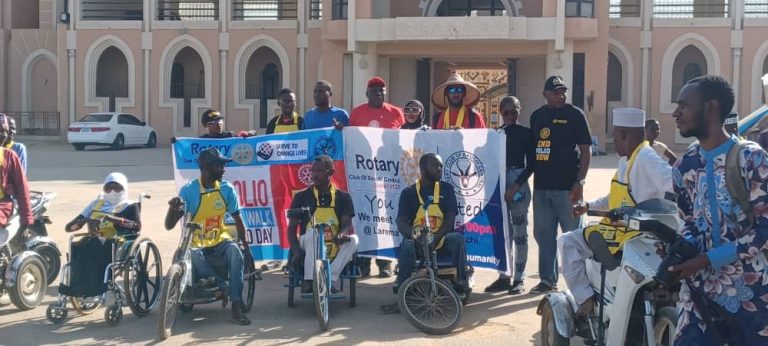A polio survivor, Ms. Sussan Ihuoma, has appealed to all levels of government to set up systems that ensure rehabilitation, sustainable empowerment, and accessibility for polio survivors across Nigeria.
She made the call in an interview with reporters during a Special Fellowship on Polio, organised by the Rotary Club of Abuja Central Business District.
Ihuoma, a Gender and Social Inclusion Advocate, proudly identified as a polio survivor for 44 years. She said she always championed inclusion, especially for people with disabilities.
“I call on the government to put in place inclusive policies that guarantee rehabilitation, empowerment, and accessibility for polio survivors, so they can live dignified and independent lives,” she said.
She acknowledged Nigeria’s success in eradicating polio but stressed that survivors still lack strong support systems to help them live beyond mobility aids and basic assistance.
“Survivors need more than just devices. We need rehabilitation, empowerment, and accessible housing. Many public buildings lack ramps, lifts, and other features that allow persons with disabilities to live freely.
“If these systems are provided, polio survivors will thrive as full citizens. We don’t want pity; we want opportunity and inclusion,” she added.
She urged parents to ensure their children receive the free oral polio vaccine, warning that a simple drop can prevent lifelong pain and disability.
“Why allow your child to suffer when prevention is free and available? Please vaccinate your child early,” she advised.
Ihuoma listed systemic and infrastructural barriers survivors face, such as inaccessible health facilities, schools, worship centres, and public buildings without ramps or elevators.
“In health centres, people in wheelchairs can’t even be weighed properly. I often avoid drinking water when I go out because most restrooms are not wheelchair accessible,” she lamented.
She also highlighted challenges in employment, blaming poor enforcement of the Disability Act, which mandates that at least five per cent of jobs be given to persons with disabilities in both public and private sectors.
“We have a Disability Act, but who is enforcing it? Many employers do not comply or even understand the value of diversity and inclusion,” she said.
Ihuoma recalled her own experience of being unemployed for 11 years despite having three degrees and performing well in online interviews. She said things changed negatively once interviewers saw her wheelchair.
“When they see the wheelchair, the conversation ends before it begins. No one bothers to ask what I can offer. That is the danger of unconscious bias,” she explained.
She stressed that life is about diversity and that polio survivors should not be seen as burdens but as family members and community contributors.
“We deserve the same rights, opportunities, and dignity as everyone else,” she said.
Ihuoma called for stronger advocacy and awareness, noting that true progress lies not only in ending polio but also in creating an inclusive society where survivors lead change and contribute to development.


